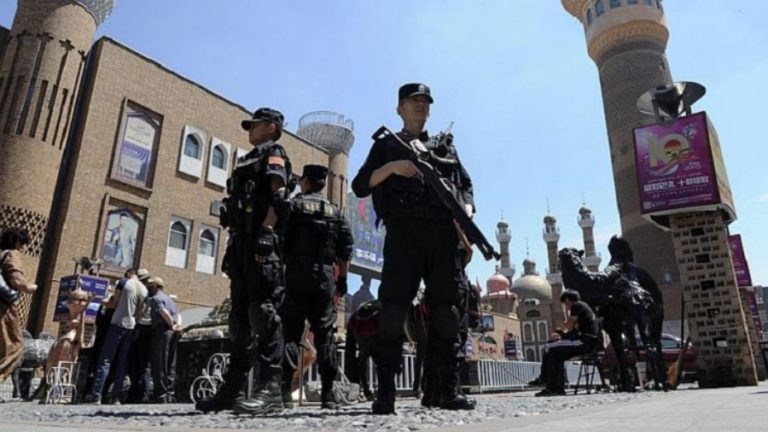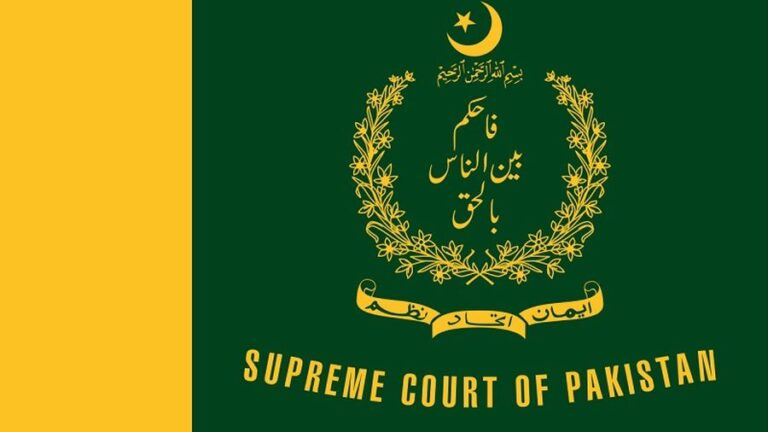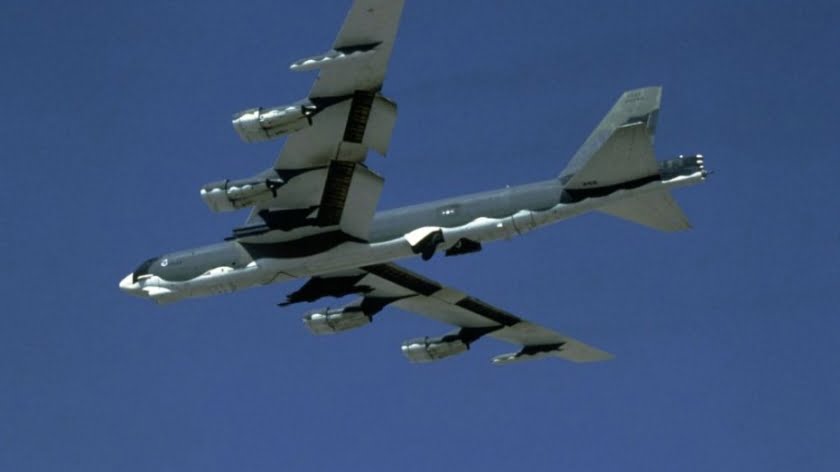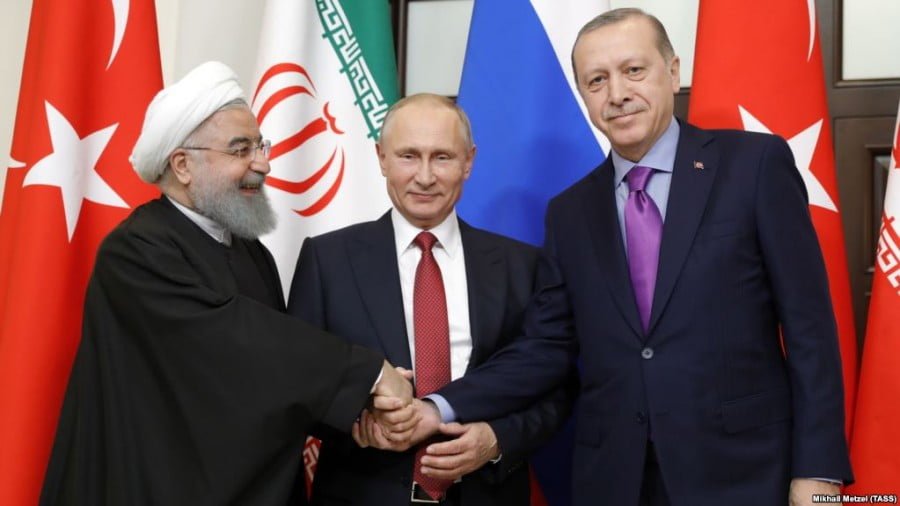The Day the World Stood Still: A Story of the First Atomic Bomb and Our Perpetual Cold War
Thus conscience does make cowards of us all;
Shakespeare’s Hamlet Act III, scene I
And thus the native hue of resolution
Is sicklied o’er with the pale cast of thought,
And enterprises of great pith and moment
With this regard their currents turn awry,
And lose the name of action.
[This paper works as a follow-up to a previous article titled, “On Roosevelt and Stalin: What Revisionist Historians Want Us to Forget.”]
Upon discovery of such an extraordinary weapon, like a terrible sword Excalibur, it was thought by some that they could use it to rule forever.
Others recognised that such power was fleeting, and would always be fleeting, that it had opened up Pandora’s Box and unleashed itself onto the world, with no limit to the magnitude of destruction it could incur, and no limit to how many hands it could fall into.
Today, we find ourselves in a self-made purgatory; we have condemned ourselves and the generations that will follow to an endless stand-off with no release, while the entire world holds its breath taken in as its hostage.
Is this what we call security? Is this what we call peace?
It is a nightmarish twisting of those words. It is, in fact, the most brutal form of tyranny that, like a madman, wildly threatens whole civilizations. It uses terror to get its way and is ready to turn those who rise up against it into ash. It has no regard for reason or understanding, it is drunk on its own colossal power and cares not what came before it and what will come after, its obsession is a fading now.
There is no escape from this type of hell through savage force, this should be clear by now, there can only be an end to this when we turn away from the very thing that brought us here in the first place, blind fear.
Let us stop this madness, and in this enterprise of great pith and moment, let us not allow our currents to turn awry…let us not lose the name of action.
“We’ve Just Saved Two Million Americans”
Despite the attack on Pearl Harbor occurring Dec 7, 1941, giving the U.S. impetus to enter the war more directly, the Americans would only begin their military air campaign against Japan in mid-1944. This is, of course, a massive lag in response.
It was understood by the U.S. that they would need the support of Russia to launch an attack on Japan. Although Germany and Japan had been in partnership and communication throughout the war, the Allied countries did not all regard the war with Japan “their problem.”
General MacArthur estimated that a million Americans would die in only the first phase of the Pacific War. The Russians were being heavily courted by the Americans to break their Neutrality Pact with Japan and enter into the Pacific War for the very straightforward reason that less Americans would die.
In a memo to FDR, General MacArthur would write, “We should make every effort to get Russia into the Japanese war before we go into Japan, otherwise we will take the impact of the Jap divisions and reap the losses…I will not consider going into any part of the Japanese islands unless the Japanese armies in Manchuria are contained by the Russians.” (1)
After three years of the most savage warfare against the German Nazis, where over 25 million Russian soldiers and civilians died, Russia was now prepared to enter into another war, only months later, with Japan to offer military support to the U.S., a country that had suffered minute losses in comparison.
When Admiral King, chief of naval operations, was informed that the Russians would definitely enter the fight against Japan, he was immensely relieved commenting “We’ve just saved two million Americans.”
“They Will Never Allow Hitler to Have a Bomb”
By early Oct 1940, it was believed by the British that a bomb could be developed from U-235, and that the American branch was in consensus that the British were right.
Despite this, Roosevelt remained reluctant to authorize the bomb-production project. For almost two years more, FDR delayed any decision, despite prodding and increasingly strident demands from Churchill, and others.
In Oct 1941, nuclear physicist Niels Bohr and his wife would secretly meet with their old friend and colleague, Prof. Werner Heisenberg, in Sweden. Heisenberg was working for the Nazis, and briefed Bohr about their nuclear weapons program. He also reported to Bohr that he believed the scientists on the project would never allow Hitler to have a bomb (2).
By mid-1942, Roosevelt would be persuaded to approve bringing in the U.S. Army Corps of Engineers to manage a full-scale bomb-production project, named the Manhattan Engineering District, later known as the Manhattan Project.
The Manhattan Project under the direction of Vannevar Bush and Henry Stimson (U.S. Secretary of War), at its peak employed 120,000 people and built and ran 37 installations, at a cost of more than $2 billion.
No one thought of the Soviet Union as a possible threat at the time, but rather it was the horrifying possibility that Hitler could be the first to control a nuclear bomb.
Is Russia our “Friend” or our “Foe”?
Niels Bohr would flee Nazi occupied Denmark in Sept 1943, and arrive in Washington D.C. on Dec 8th 1943. Bohr was quickly recruited in becoming an advisor to the Manhattan Project, and would propose that the United States work, along with Britain and Russia, to set up international control and inspection of atomic energy, for use of atomic energy based on “cooperation” not conflict, and that Russia must be approached as soon as possible to create mutual trust.
FDR would assign Bohr to meet with Churchill in May 1944, in order to persuade him on the matter.
Needless to say, the meeting was an absolute disaster.
It was the thought of Churchill, and many in the U.S. military circles such as General Groves (who would go on record (3), that the Soviets, if ever, would only succeed in building an atomic bomb ten or more years after the Americans. And thus, to share knowledge with the Soviets was “unnecessary.”
Although Bohr was the most outspoken on the subject, the reality was that the greater majority of the scientists working on the Manhattan Project were of a similar accord. From the first, discussions had been held between the scientists and the military as to the question of how long a lead time America would have.
If the bomb could be kept secret for a number of years, it was the thinking among the military (excepting General Marshall) that there was no need to tell Russia. But if it could not be, and the scientists were agreed that it could not be, that the extremely dangerous matter of an arms race had to be faced.
The other complication was that even if secrecy could be maintained for a few years, it would still jeopardize the trust of the Russians, and could potentially threaten the U.S.-Russia alliance. The ultimate question was thus whether the Russians were to be considered a “friend” or “foe” on the subject of nuclear energy.
Churchill would write, “Even six months will make a difference should it come to a show-down with Russia.” (4)
Churchill was always convinced that such a day would inevitably come, when the Russians would militarily attack Britain, it is interesting that he never seemed to reflect on his own possible role in bringing such a thing about.
In July 1944, Bohr would send a long memo to FDR, disclosing his meeting with Kapitza (a Russian physicist) while he was in London, and his view that the Soviets are indeed working on nuclear weapons, that when they seize Germany they will have access to “immense resources for a full scale effort”, and that this would lead to “a fateful competition” against the Americans if secrecy is maintained.
FDR would meet with Niels Bohr on August 26th, 1944, and agreed that Russia should be approached. (5)
On Sept 18th, 1944 FDR would meet with Churchill at Hyde Park. It was at this meeting that the controversial Hyde Park Aide-Mémoire would be signed, an extraordinary memo stating that the atomic bomb should be kept a secret solely between the U.S. and Britain, and for the first time mentions the possible use of the bomb against the Japanese.
In this aide-mémoire, Churchill was also able to cause Roosevelt to distance himself from Bohr, who was being accused of being a Russian agent by British intelligence, since he failed to inform them of his meeting with Kapitza while in London, to which the memo references.
I suspect we will never know why or how Churchill had prevailed that day in getting Roosevelt to sign such a thing, which was entirely uncharacteristic of him. The likeliest explanation is that FDR figured he could introduce new arguments in a later discussion and reverse his position, as he frequently did with Churchill; an aide-mémoire was by no means a binding contract.
Perhaps Roosevelt’s greatest mistake in the matter was that he presumed, despite his failing health, that he was going to live to see out the end of the war.
On Sept 30th, 1944, after a meeting with FDR who almost certainly steered them in this direction, Vannevar Bush, along with James Conant, would produce a document that completely refuted the path set out in the aide-mémoire; it was titled “Salient Points Concerning Future International Handling of Subject of Atomic Bombs.”
The memo states that “it would be the height of folly for the United States and Great Britain to assume they will always continue to be superior in this new weapon,” and thus most dangerous to continue to maintain secrecy towards the Russians, as to the existence and intention of the program.
The memo continues on how the international exchange of information should be handled, not disclosing how to manufacture a nuclear weapon but on how to harness the benefits of nuclear energy in good faith.
After all, good faith was all they had, since it could never be kept a secret forever, and thus it had to be introduced with trust rather than giving the impression that such power was being withheld to usurp over others. If the United States, by far the strongest country in the world was to respond with fear and distrust, how could they expect those in a much more vulnerable position to operate under a fully committed trust?
On March 15th, 1945, just one month before FDR died, he met with Stimson and would have the last discussion on record about the bomb project. Stimson would write about the meeting:
“I went over with him the two schools of thought that exist in respect to the future control after the war of this project in case it is successful, one of them being the secret close-in attempted control of the project by those who control it now, and the other being the international control based upon freedom both of science and of access. I told him that those things must be settled before the first projectile is used and that he must be ready with a statement to come out to the people on it just as soon as that is done. He [FDR] agreed to that.” (6)
On April 12th 1945, Roosevelt died, four months before the launch of the first atomic bomb on Japan, with no official statement written on which school of thought the United States would or should adopt. The man to replace him as President would not even be aware that a bomb project existed…
“The President is my Friend”
Stalin would say of Roosevelt in July 1944, “The President is my friend, we will always understand each other.” FDR would remark in turn the following month at the Dumbarton Oaks Conference, “At Tehran the Marshal and I got to know each other. We got on beautifully. We cracked the ice, if there ever was any ice; and since then there has been no ice.” (7)
The final document presented at the Dumbarton Oaks was the result of five years of fine-tuning by FDR. Russia, China, Great Britain, the U.S. and after discussion France, were to be the five permanent members of the United Nations Security Council.
In Stalin’s annual eve of anniversary speech on Nov 6th 1944 he stated:
“Can we count on the activities of this international organization being sufficiently effective? They will be effective if the Great Powers who have borne the brunt of the burden of the war against Hitler Germany continue to act in a spirit of unanimity and harmony. They will not be effective if this essential condition is violated.” (8)
The first successful atomic bomb test occurred on July 16th, 1945 in Alamogordo, New Mexico. Seven days later, Stalin was informed at the Potsdam conference by Truman that America now had the bomb. (9) Truman, contrary to what he was advised to do, made no mention of collaboration, no mention of making the world peaceful and safe, and no offer to share information with the Russians, not even in return for any quid pro quo. Simply that America now had the bomb.
Both Churchill and Clement Attlee were also present at Potsdam, the reason being, was that Churchill was in fact on his way out as Prime Minister of Great Britain, his last official day being 26th July, 1945 which overlapped with the Potsdam conference (July 17th to August 2nd). The British people had made it crystal clear where they stood in relation to Churchill’s conduct during the terrible war.
On August 6th 1945, Little Boy, the first atomic bomb was dropped on Hiroshima.
On August 9th at 1:00 am one million Soviet troops crossed the border into eastern Manchuria to face the Kwantung, the culmination of ten months of coordinated planning. However, later that same day a second atomic bomb, Fat Man (named after Churchill), was dropped on Nagasaki. The Russians were completely taken aback.
On August 10th, Japan surrendered.
The decision to drop the bomb, Truman would write in a letter to his daughter Margaret, was “no great decision…not any decision you would have to worry about.”
Nuclear physicist Yuli Khariton would voice a common Russian reaction when he wrote that the two bombs that were dropped on Japan were used “as atomic blackmail against the USSR, as a threat to unleash a new, even more terrible and devastating war,” if Russia refused to play by the rules decided for her.
With this terrible display of horrifying power, most of the world quickly forgot that the Russians were ever willing to enter the Pacific War to “spare American lives.”
There is little doubt which road Roosevelt would have taken if he had lived.
International control based on freedom of access was a Roosevelt hallmark. A strong international organization was his goal in life. His plan for the postwar limitation of arms from the start had been based on parity among the four powers: Russia, China, Britain and the United States.
On April 11th, 1945, the day before Roosevelt died; he drafted a speech that he was to deliver in the coming days, it is considered his last message to the American people:
“We must go on to do all in our power to conquer, the doubts and fears, the ignorance and greed, which made this horror possible…
Today, we are faced with the preeminent fact that, if civilization is to survive, we must cultivate the science of human relationships – the ability of all peoples, of all kinds to live together and to work together, in the same world, at peace…
The work, my friends is peace. More than an end of this war – an end to the beginnings of all wars. Yes, an end, forever, to this impractical, unrealistic settlement of differences between governments by the mass killing of peoples…
The only limits to our realization of tomorrow will be our doubts of today. Let us move forward with strong and active faith.”
To Be or Not To Be
By the end of the war, the contrast between the United States and Soviet Union was enormous. The U.S. was supplying over half of the world’s manufacturing capacity, more than half of the world’s electricity, holding two-thirds of the world’s gold stocks and half of all the monetary reserves. It had suffered 405,000 casualties, .003 percent of its population.
Russia suffered 27 million casualties, 16 percent of its population. The Germans burned 70,000 Russian villages to the ground and destroyed 100,000 farms. Twenty-five million Russians were homeless. 32,000 factories and 65,000 railroad tracks were destroyed. And its major cities: Leningrad, Stalingrad and Moscow were in shambles.
Though the Russians had received supplies from the U.S. (despite the grumblings of Churchill), what allowed them to ultimately defeat the Wehrmacht was their strength of spirit and will. If Russia had fallen, it would have been much worse for Britain which had, at its peak, an infantry of 18,347 soldiers.
Roosevelt had promised a thirty year post-war loan to the Russians to allow them to rebuild after the war, which had been in discussion for two years prior to his death.
However, there was never to be such a loan or even financial credits offered, in fact, it was refused.
When asked, Truman denied that the Russians had even applied for credits, that the U.S. had invited the Soviet Union to negotiate credits and that it had not responded.
In March, 1946, the State Department had to acknowledge that this was not true, that the August, 1945 original Russian loan application had, in fact, been apparently “lost” during a transfer of the documents from the Foreign Economic Administration. (10)
Secretary of State James Byrnes would later admit that he made sure that the credits would not be granted by burying the pertinent folder: “I had it placed in the forgotten file, as I felt sure that Fred Vinson, the new Secretary of the Treasury, would not press it.” (11)
Roosevelt had also offered the Soviet Union to become an original member of the World Bank and IMF, however, these were also never realised after FDR’s death, claiming the Cold War (that Churchill had pronounced with no due cause) now made such a thing impossible.
Incredibly, much of this ill treatment of the Soviet Union was from the standpoint that they could never be trusted, that if they were allowed to rebuild themselves they would use their strength to militarily strike against Britain and the U.S. The ongoing fear was that Stalin was and would always be worse than Hitler that it was only a matter of time before Stalin would reveal his desire to brutally rule over the West.
Yet, 75 years later, there was never such an attempt. And this fear has yet to confirm itself as something more than the orchestrations of a paranoid, if not lunatic, mind.
Today, the Russian Federation is one of the most powerful nations in the world. Its nuclear weapons and deterrence capabilities are among the most sophisticated, if not the most sophisticated. And U.S.-Russian relations are possibly the lowest they have ever been.
So, I ask you, was it worth it?








4 Comments
Comments are closed.